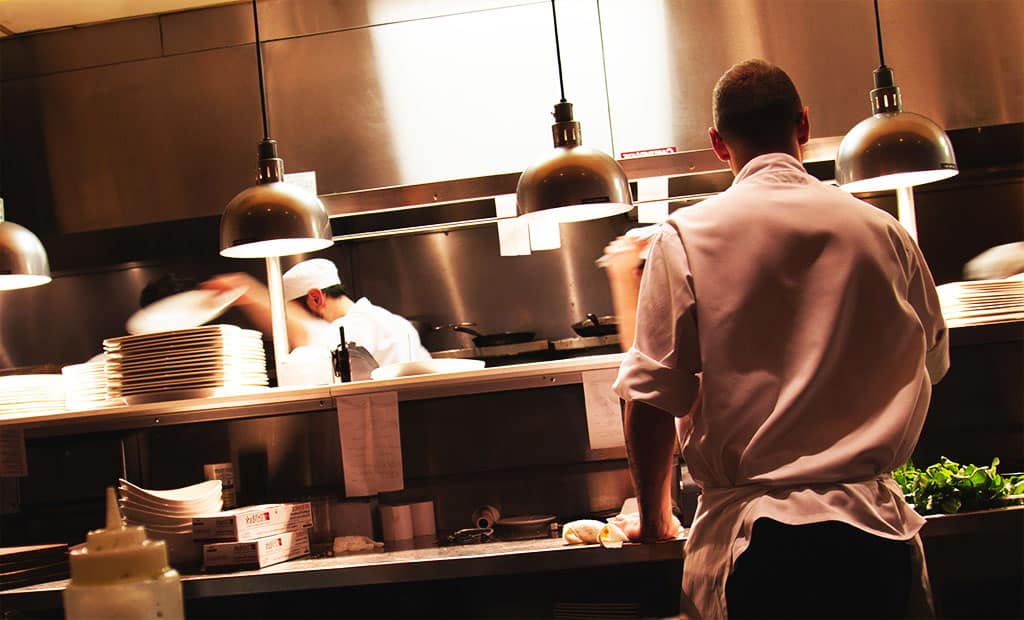Food: The Final Frontier for Enterprise Ecommerce

Ecommerce has experienced rapid, steady growth over the past decade. Even with all the advances in the world of ecommerce, it still only accounted for less than 9 percent of all retail sales in 2016. That means there’s still a ton of room for potential growth in online shopping. Of all the various sectors and niches, food may be the area that has the most to gain in the future of e-shopping.
In fact, it’s estimated that Americans will spend about $100 billion buying groceries online by 2025—with about 70 percent of households participating in the action. Food is the final frontier for enterprise ecommerce. The companies that do the best job adjusting to this shifting dynamic will be able to capitalize on this monumental opportunity.
Why Is Buying Food Online Less Common than Other Goods?
Currently, online shopping for groceries and other perishable food items (excluding delivery services) is nowhere near as popular as it is for other products. Most people are more likely to buy an electronic device, or clothing, online than their weekly groceries. There are a few reasons for this:
- Inherent Challenges in Providing Fresh Groceries: One of the biggest reasons why grocery delivery has taken longer to catch on than other forms of ecommerce is because of its inherent logistical challenges. When delivering non-food items, there’s usually no need to worry about preserving freshness. This, however, becomes a huge issue when bringing groceries to people’s doorstep. You can’t just leave ice cream out on a hot summer day. People will also be upset if, upon opening their package, they find soiled produce. They will blame the provider for this, which cuts into already razor-thin margins typical in the grocery world.
- Disconnect in People’s Minds: Many people also aren’t quite ready to accept groceries as a normal delivery item. For one, people tend to associate delivered goods with cheapness. This isn’t necessarily beneficial when people are considering what they’re putting into their bodies. However, as grocery delivery becomes more normalized and reliable, people will continue adapting to the change.
Advances in enterprise ecommerce solutions are now making it possible for food and groceries to surge into the spotlight for home delivery. Major players such as Wal-Mart and Amazon have both shown they’re gearing up to lead the way in grocery delivery. So, is there room for smaller ecommerce stores in this space? It’s definitely possible, with some models being more conceivable than others.
Sealed Items Will Be Best for Small Players
It will be difficult for smaller ecommerce stores to reliably provide customers with goods that require fast delivery or refrigeration. While both of these things might be possible in the future (especially on the hyperlocal level), they are certainly more challenging than offering an inventory of sealed goods.
Beverages actually are a smart place to start for anyone trying to break into the ecommerce food world. For starters, these are sealed items, which usually don’t require cooling to stay fresh. This makes the shipping process much easier from a seller’s perspective. Additionally, relaxation beverages are poised to be a huge future market, which has still been largely untapped. This includes drinks containing the essences of certain plants or natural properties meant to promote calmness. This sector is experiencing annual growth rates over 20 percent.
Connect with Other Smaller Stores to Form a Food Coalition
The big dogs of ecommerce feed on the weakness of small competitors. They will be successful as long as they’re able to price out individual ecommerce stores. One way for the little guy to combat this is by creating a coalition with others. By promoting each other’s products, and even creating bundles to sell more goods, small food ecommerce store owners can experience strength in numbers.
Food and grocery delivery is going to completely change how people shop—both in the physical world and with ecommerce. It’s prudent to prepare your online store now in order to take full advantage of this shifting landscape.
Bring the best of the CEOWORLD magazine's global journalism to audiences in the United States and around the world. - Add CEOWORLD magazine to your Google News feed.
Follow CEOWORLD magazine headlines on: Google News, LinkedIn, Twitter, and Facebook.
Copyright 2025 The CEOWORLD magazine. All rights reserved. This material (and any extract from it) must not be copied, redistributed or placed on any website, without CEOWORLD magazine' prior written consent. For media queries, please contact: info@ceoworld.biz











